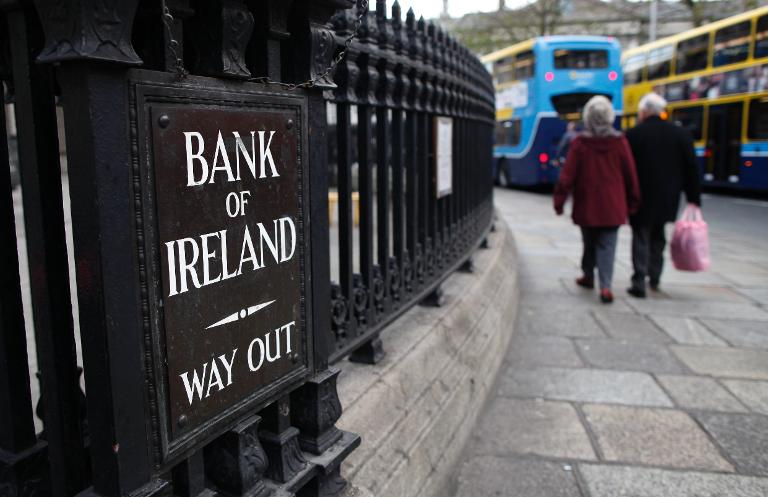
Ireland promises end to greed culture on exiting bailout
(MENAFN- AFP) Prime Minister Enda Kenny vowed that Ireland would never return to a culture of "speculation and greed" as it formally exited an international bailout on Sunday.
Ireland is the first eurozone nation to leave its bailout programme but celebrations were muted as the country faces more austerity despite the end of the three-year rescue package.
In a state of the nation-type address aired on Irish television, Kenny called the exit "an important step" but "not an end in itself."
"Our lives won't change overnight," he warned during the speech, just the sixth such address delivered by an Irish prime minister other than during elections.
Dublin turned to the International Monetary Fund and European Union in November 2010 for an 85 billion euro ($115 billion) lifeline following a banking crash and one of history's worst housing bubbles.
After painful belt-tightening, Ireland is now returning unaided to the international lending markets -- while eurozone strugglers Greece, Portugal and Cyprus remain locked into the bailout process.
Kenny paid tribute to the Irish people and announced that the government would this week unveil a plan for Ireland's economy between now and 2020.
He said the plan would "ensure that never again will Ireland's stability be threatened by speculation and greed."
Under the proposals, Ireland's public debt will be cut by a quarter, relative to the size of the economy, and employment will rise to over two million.
"I know that many people are struggling to make ends meet," Kenny told the nation.
"For many of you, the recent improvements in the economic situation are not yet being felt in your daily lives.
"But it is now clear that your sacrifices are making a real difference," he insisted.
'Return to full health will take some time'
With the end of the bailout, Dublin will now have greater control over economic decision-making after three years of stringent oversight by the EU, IMF and the European Central Bank.
The so-called troika of lenders insisted on tax rises, structural reforms and the sale of state assets in exchange for the bailout, and assessed Ireland's progress every three months.
Ireland has returned to growth, unemployment is falling and the banking sector has been reduced to a more appropriate scale to match the size of the economy, but analysts agree the banks remain a risk.
Irish newspapers said the country's problems were not over.
"Like a patient discharged from the intensive care unit, the return to full health will take some time," the Irish Sunday Times said in its editorial.
The country's opposition parties will be given the opportunity to address the nation tomorrow night.
Ireland did not face the same large-scale protests that hit Greece during the bailout years.
A poll on popular news website The Journal.ie on Sunday shows the level of apathy towards the bailout exit despite Dublin's desire to frame the development in a positive light.
Of the almost 3,500 votes since the poll went live, over half selected "hearing about it makes me feel worse", while only six percent said they felt happier.
'The suffering isn't over'
The IMF approved the 12th and last review of Ireland's progress on Friday, allowing a final $890 million payout.
To mark the end of the bailout programme, the IMF's managing director Christine Lagarde praised Ireland's "steadfast policy implementation".
But Lagarde warned of "significant economic challenges" ahead.
"Unemployment is too high, public debt sustainability remains fragile, and heavy private sector debts and banks' slow progress in resolving non-performing loans weigh on domestic demand," she said in a statement.
Much of the focus in the Irish Sunday newspapers was on the future economic strategy and the possibility that austerity will ease after another tough annual budget next year.
The Sunday Independent reported that Dublin will promise to end austerity by 2016, in time for the next general election.
The Sunday Times suggests the plan will target a 4.2 percent unemployment rate by 2020, far from the current level of 12.8 percent and last year's peak of 14.7 percent.
Advocacy groups warn that the most vulnerable in society will still suffer.
"There is a need for sensitivity. The suffering isn't over," John Dolan, chief executive of the Disability Federation of Ireland, told AFP.

Legal Disclaimer:
MENAFN provides the
information “as is” without warranty of any kind. We do not accept
any responsibility or liability for the accuracy, content, images,
videos, licenses, completeness, legality, or reliability of the information
contained in this article. If you have any complaints or copyright
issues related to this article, kindly contact the provider above.


















Comments
No comment